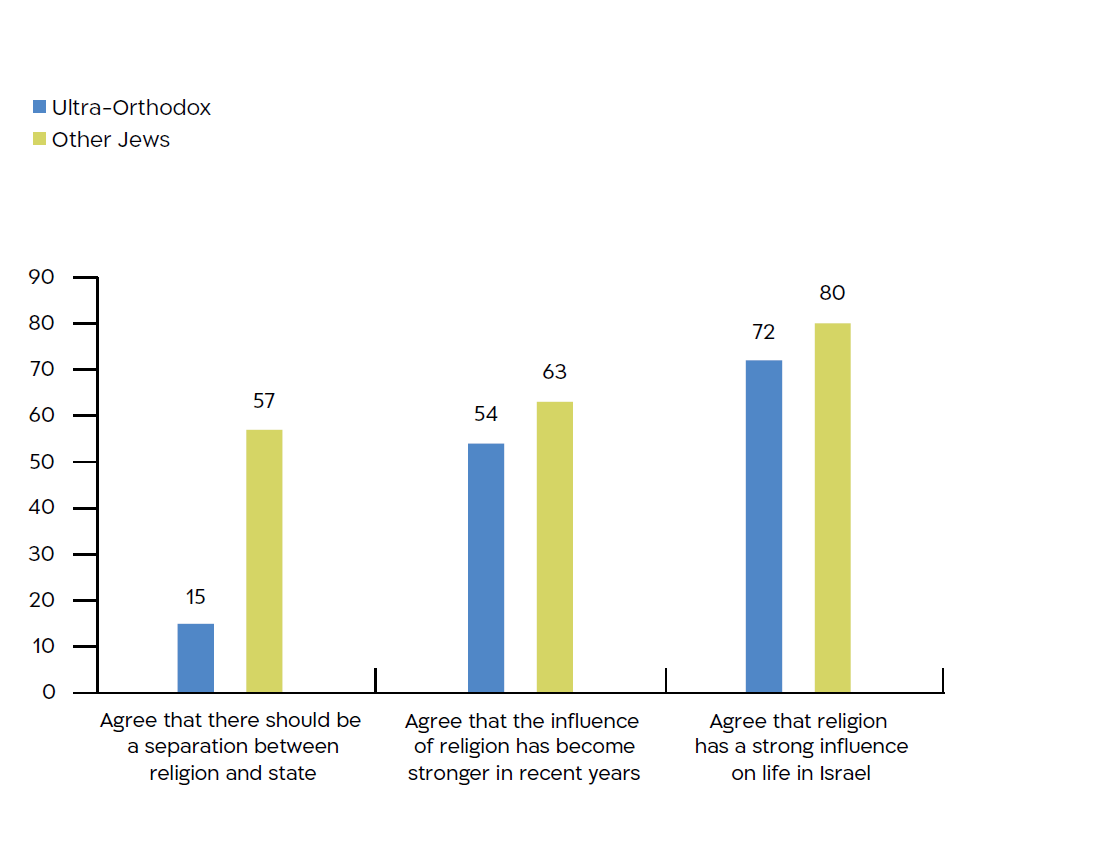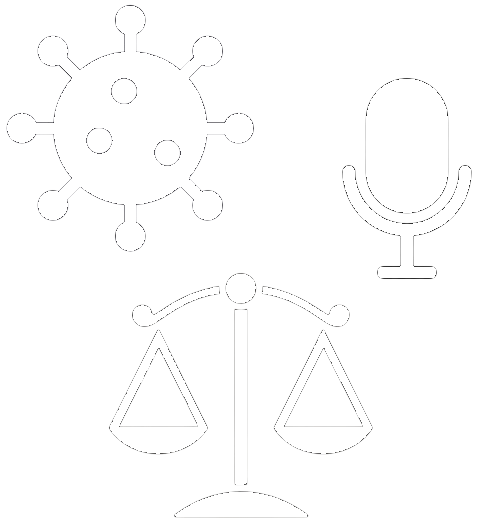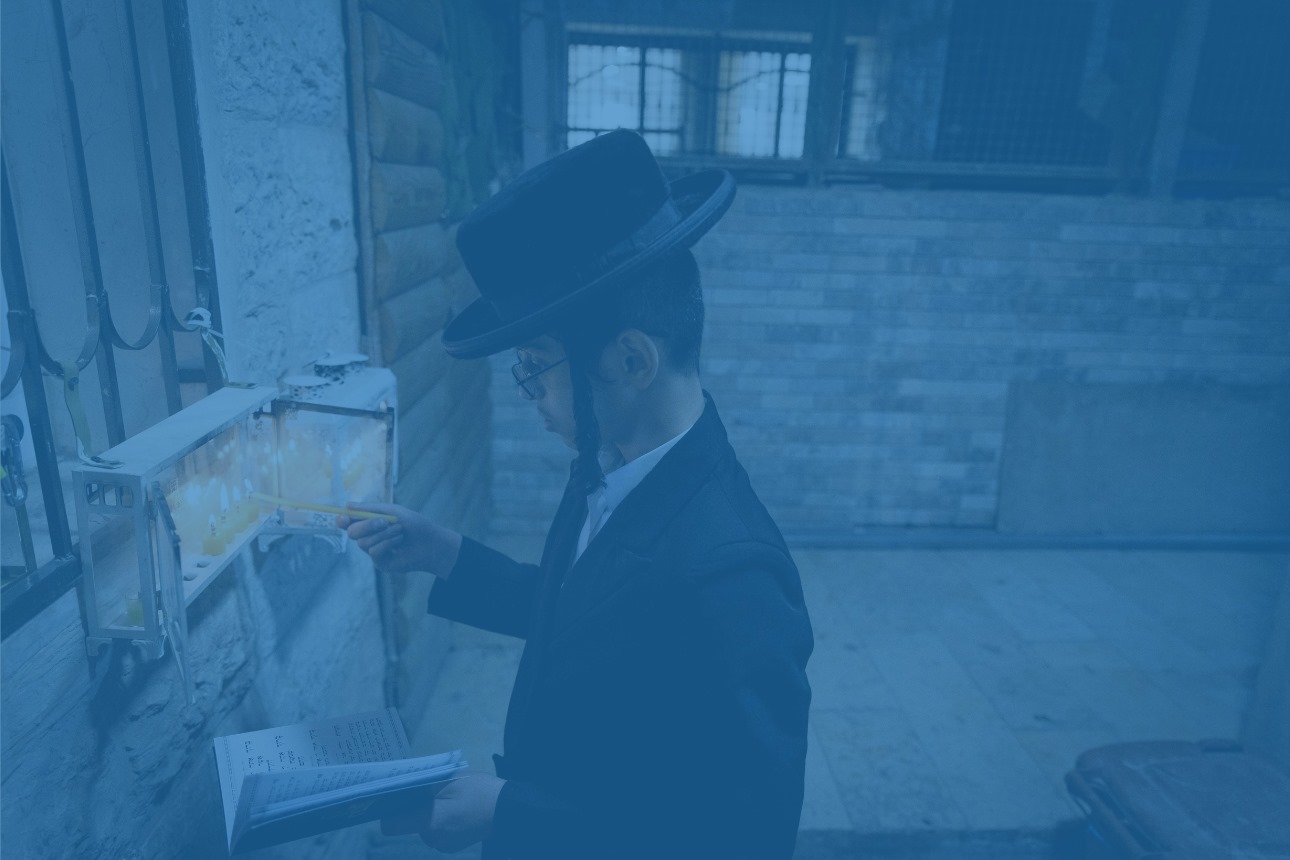Effects of COVID-19, Views on Democracy and the Media, and Religion in Israel
Chap. 6
For 2022, the non-standard questions in the CBS Social Survey concerned the socioeconomic effects of the COVID pandemic, views on democracy and the media in Israel, and religion and state.
The Effects of COVID-19
During the pandemic, Haredim became ill with the virus and lost family members at higher rates than the rest of the population: 75% of Haredim report that they had COVID-19, compared with 56% of other Jews. Furthermore, 28% of Haredim reported that they lost a family member or friend due to the virus, compared with just 12% of other Jews.
Had the COVID-19 virus, by population group, 2022 (%)
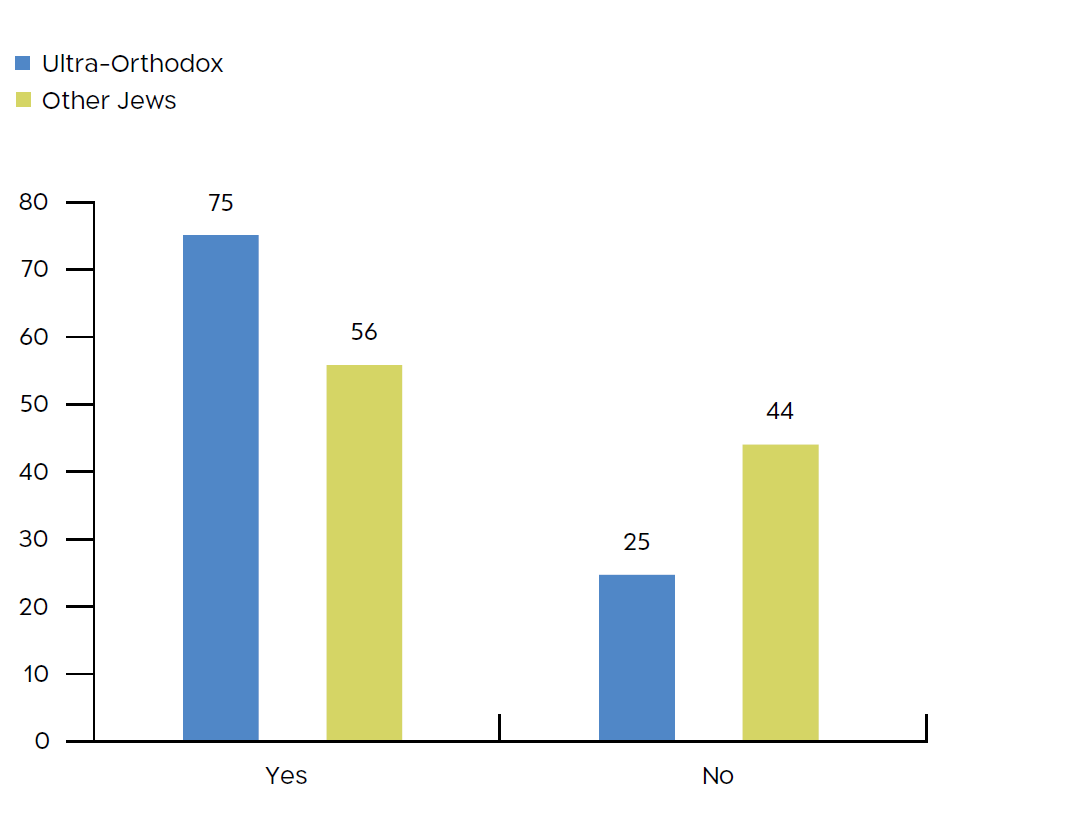
One of the long-term consequences of the pandemic was the widespread shift to working from home. In this regard, similar trends were reported by both Haredi and non-Haredi Jews, with 25% of Haredim saying that they switched to working from home (fully or partially) because of COVID, compared to 24% of non-Haredi Jews. However, Haredim had a more negative outlook on working from home than did other Jews: 67% of Haredim reported that working from home is less efficient than being in the workplace, compared with just 40% of non-Haredi Jews. Accordingly, only 9% of Haredim said that working from home is more efficient, compared with 23% of other Jews.
Relative efficiency of working from home, by population group, 2022 (%)
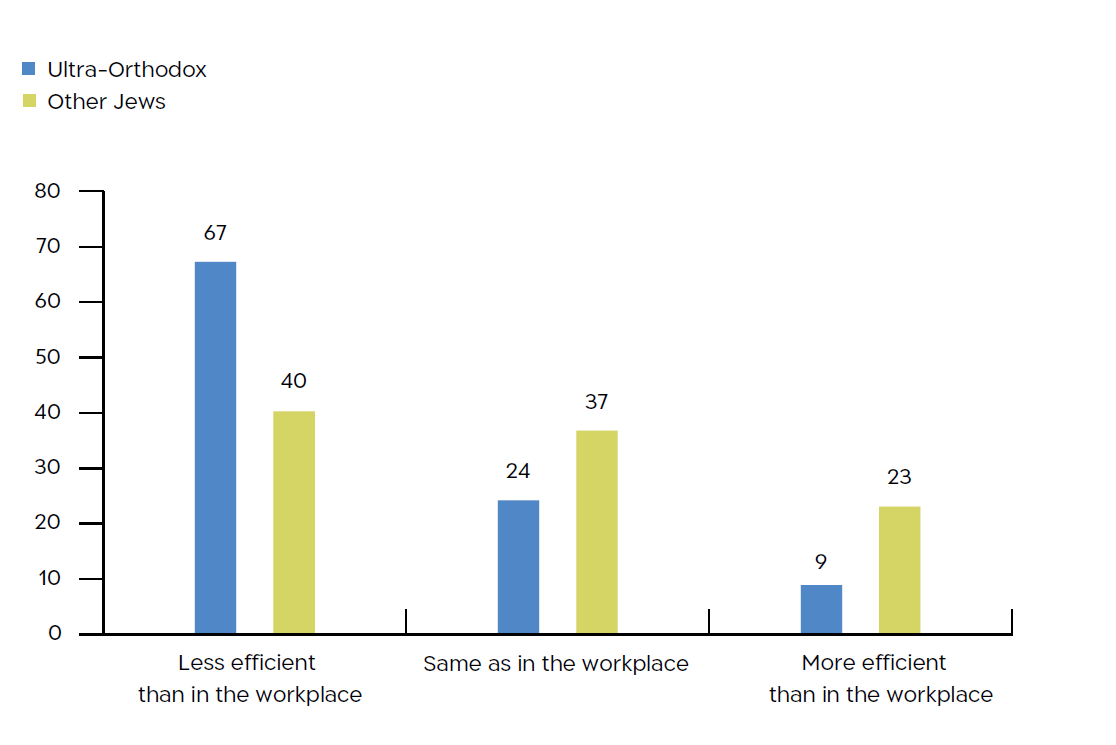
Democracy and the Media
In the Haredi public, there is a clear trend of dissatisfaction with democracy in Israel: 75% reported that they are "not so satisfied" or "not at all satisfied" with the way in which democracy works in Israel, compared with 45% of non-Haredi Jews.
The tendency of Haredim to express dissatisfaction with the state of democracy in Israel is also evident in their attitude toward the media and freedom of speech: 55% feel "very free" or "somewhat free" to express their opinions about the functioning of the government on the various media platforms, on social media, or in online comments sections, compared with 67% of non-Haredi Jews. Haredim also have a more negative view of the traditional media outlets in Israel, with 21% saying that they "strongly agree" or "somewhat agree" that the traditional media (television, radio, and the press) provide reliable information, compared with 40% of non-Haredi Jews. In general, Haredim view the media as less reliable than do other Jews.
Views on the media in Israel, by population group, 2022 (%)
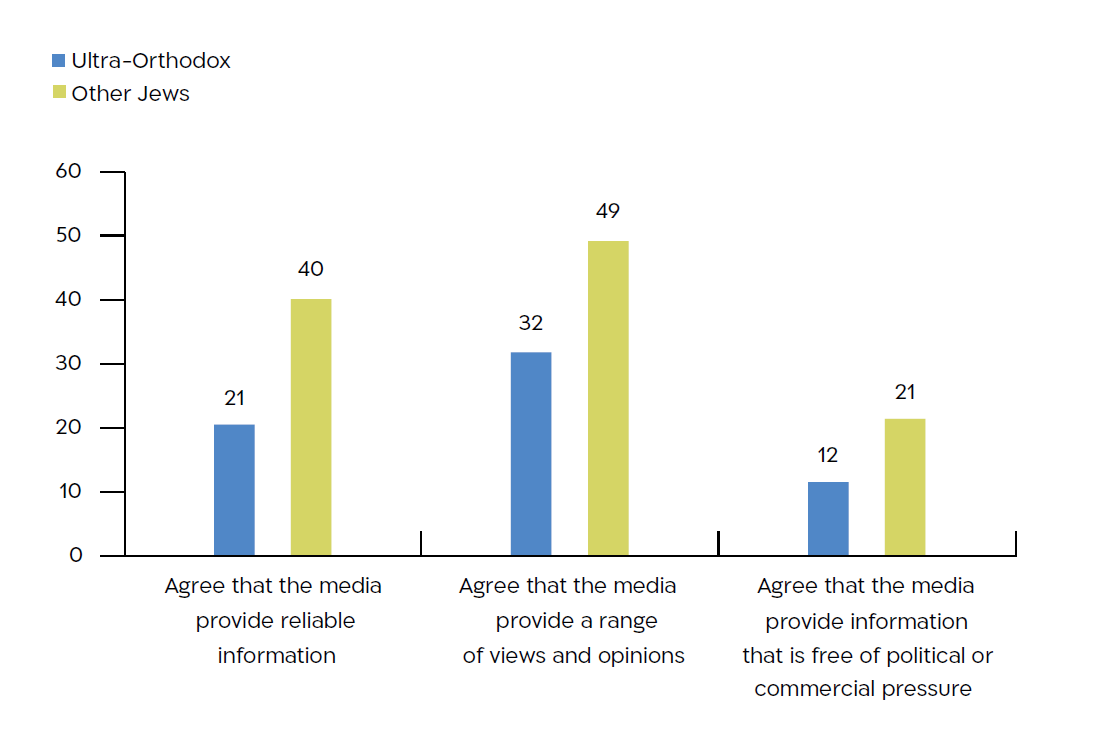
Religion
On the topic of religion, 72% of Haredim and 80% of non-Haredi Jews agree ("strongly" or "somewhat") that religion has a strong influence on life in Israel. The majority of Haredim (54%) also agree ("strongly" or "somewhat") that the influence of religion has grown stronger in recent years, as do 63% of non-Haredi Jews.
However, when it comes to the issue of separating religion and state, there is a very large discrepancy between Haredi and non-Haredi Jews, with only 15% of Haredim in favor of a separation between religion and state, compared with fully 57% of other Jews. In addition, Haredim reported a worsening in relations between religious and secular Israelis due to the COVID-19 pandemic.
Views on the influence of religion in Israel, by population group, 2022 (%)
